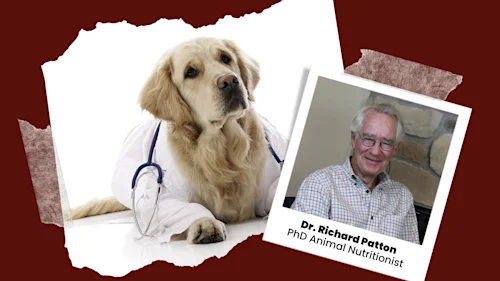
What's the Difference Between a Vet and a PhD Animal Nutritionist?
Dr. Richard Patton has spent 40 years as an animal nutritionist and has formulated diets for nearly every kind of animal. He has consulted for governments, zoos, pet food companies, and more and has 25 scientific publications, two patents, one book (on pet nutrition), and numerous popular press articles.
We had the chance to talk to him recently about his experience and his thoughts on raw, and some of his answers may surprise you.
Q: What does an animal nutritionist do?
A: Design diets for animals that deliver the nutrients needed for a specific animal or animal group.
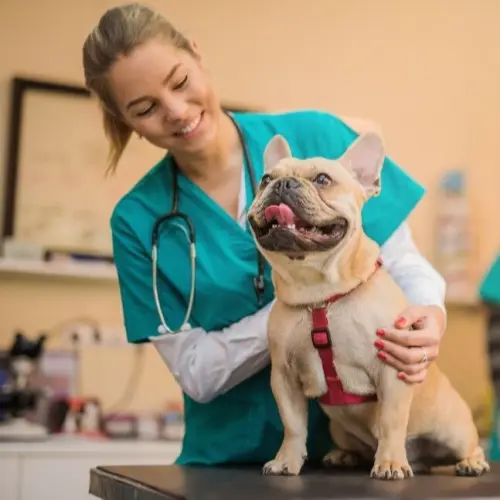
Q: Many people believe vets are the top authority on pet nutrition. What makes you more qualified to talk about dog food than the average veterinarian?
A: I don’t think the criteria should be what formal training one had so much as it should be what experience. There are vets who are very capable of advising about nutrition. However, one who has done nothing but animal nutrition for 40 years is more informed than a recent vet school graduate. Vets fix broken animals; nutritionists prevent them from breaking in the first place.
Q: What got you interested in animal nutrition?
A: I took a course in animal nutrition as an undergraduate and saw the discipline as a chance to be a scientist and a cowboy at the same time. It has proved to be so.
Q: What are some of your many accomplishments in this field?
A: This question is awkward for me as only time can answer it, but I hope my peers value that I’ve worked in over 28 countries, hold two patents, have a couple dozen scientific peer review journal articles, worked years in nutrition of the pregnant mother, and I am the oldest known animal nutritionist in captivity.
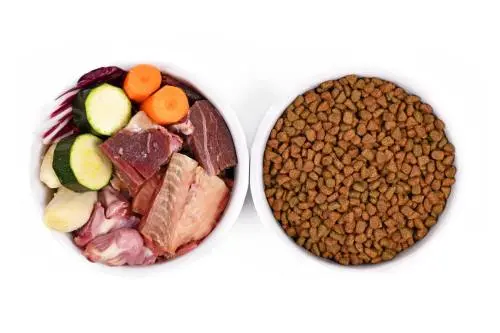
Q: What makes raw dog food better than kibble?
A: Low soluble carbohydrate, meaning starch and sugar.
Q: What's better about having lower soluble carbohydrates in pet food?
A: A high-carb diet first of all raises blood sugar and is fattening, and predisposes the wrong gut microflora, leading to diminished B-vitamin production from gut bacteria.
Q: Are there any dogs who wouldn't benefit from a raw diet?
A: No. Any healthy dog would benefit.

Q: Does that mean dogs with certain health conditions shouldn't eat raw dog food?
In some cases of illness, for example kidney disease, clinicians applying dietary management aim for a phosphorus intake below that required for healthy pets. In truth, most all dogs, sick or not, would benefit from WFR's low-carb diet, but there is a distinct line between a confirmed medical diagnosis and the nutrition of healthy pets. We must respect the distinction.
Q: What do you say to people who insist there is no real science behind raw diets?
A: In most cases, these people are simply working their agenda and I doubt would accept “real” science if shown to them. As a matter of fact, there are peer review scientific articles showing greater digestibility, longer life, and lower vet bills.
Q: What is the best way to feed a raw diet?
A: In a bowl on the floor, two to three times a day.
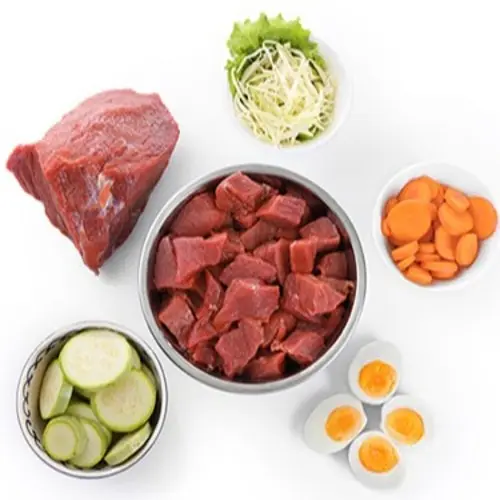
Q: What do you feed your own pets?
A: I’m paid well in Europe to advise on this but in my home, I’m background music. I think this is standard couple dynamics. I can tell you what my wife feeds. The little dog gets frozen raw, the big dogs get frozen raw and kibble.
While I don't specifically endorse any one brand, I am a rigorous proponent of sound science and automatically support anyone who applies sound nutrition science. We Feed Raw fulfills this requirement of mine.
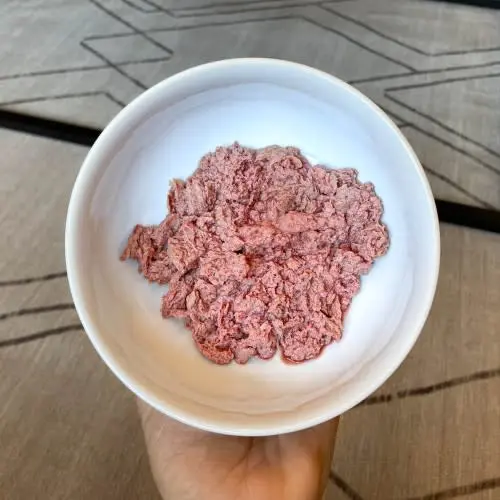
Q: What are the biggest shifts you've noticed in the pet food industry in the last 10 years?
A: Although a smaller component of the overall market, the fastest-growing segment is freeze-dried, by far. My clients with freeze driers are swamped. Another topic on the radar these days is insects. Ironically, I did a lot of research on this in graduate school. Insects are delightful nutrition. We just have to get around the “yuck” factor.
Q: Is there any science happening now in the pet food world that you're particularly excited about?
A: I am not informed about research now in the pipeline, but I do have my opinion of what is needed. There is a woeful lack of understanding that the source of the calories, whether from protein, fat, or carbs, is crucial. Nobody seems to get it that fat is innocent. Carbs are the problem. I think every pet food label should declare the percentage of calories derived from carbs.
Q: What can you tell us about your book, “Ruined by Excess, Perfected by Lack”?
A: It's in its second printing. It took me ten years to finish. I have considered an update or rewrite, but other than a few typos, I don’t see the need at this time. With the internet, the traditional book format is less utilized.
Q: What other books/podcasts/social accounts/resources would you recommend for people looking to learn more about pet nutrition?
A: Rodney Habib and Karen Becker have a good book out, The Forever Dog. Another book I wish the whole world would read is Good Calories, Bad Calories, by Gary Taubes. It is a bit technical, but Taubes is an excellent investigative journalist. My predominant sentiment after reading it was I was embarrassed to be a scientist. The hard scientific proof is out there and even the science community ignores it. The people at Dogs Naturally Magazine are dedicated to sound science (and the ones who market my book).
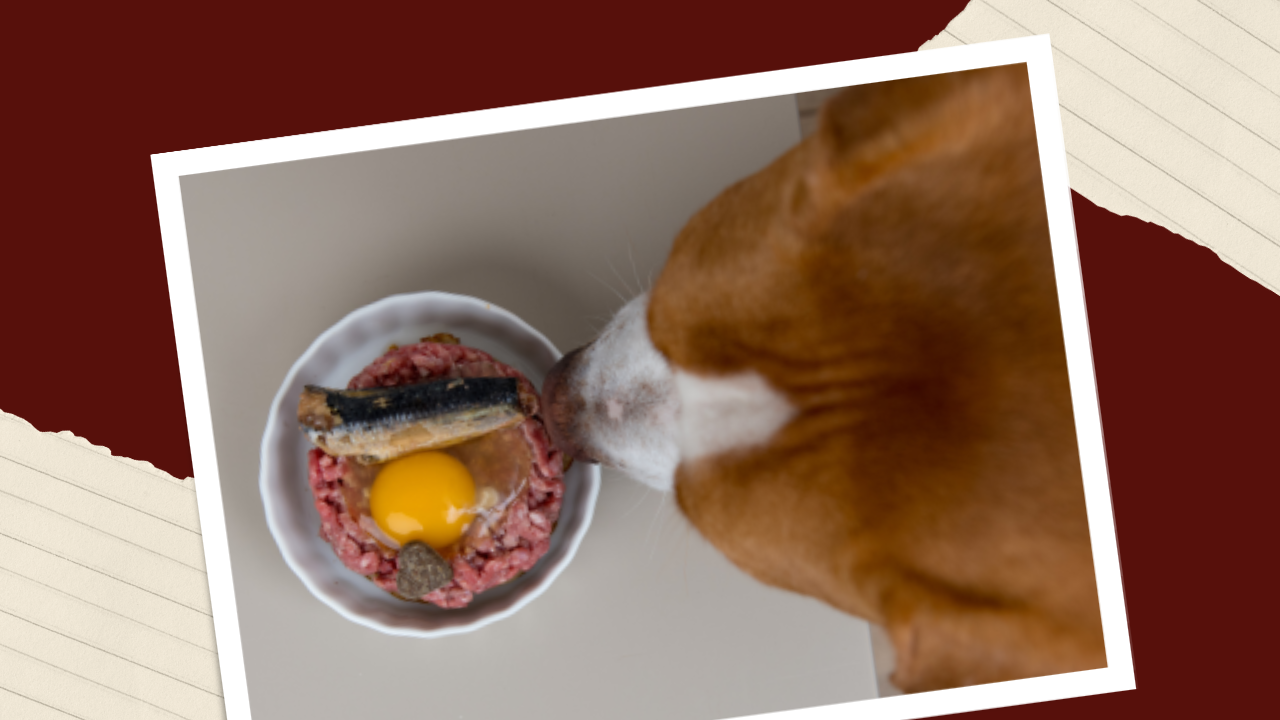
Q: What do you recommend for people who can’t afford a fully raw diet?
A: People base their pet food buying decisions on three things: price, convenience, and nutrition. You can’t have all three. Convenience with nutrition is going to be expensive. Feed whatever amount you can afford. This is moving in the right direction and an incremental improvement.
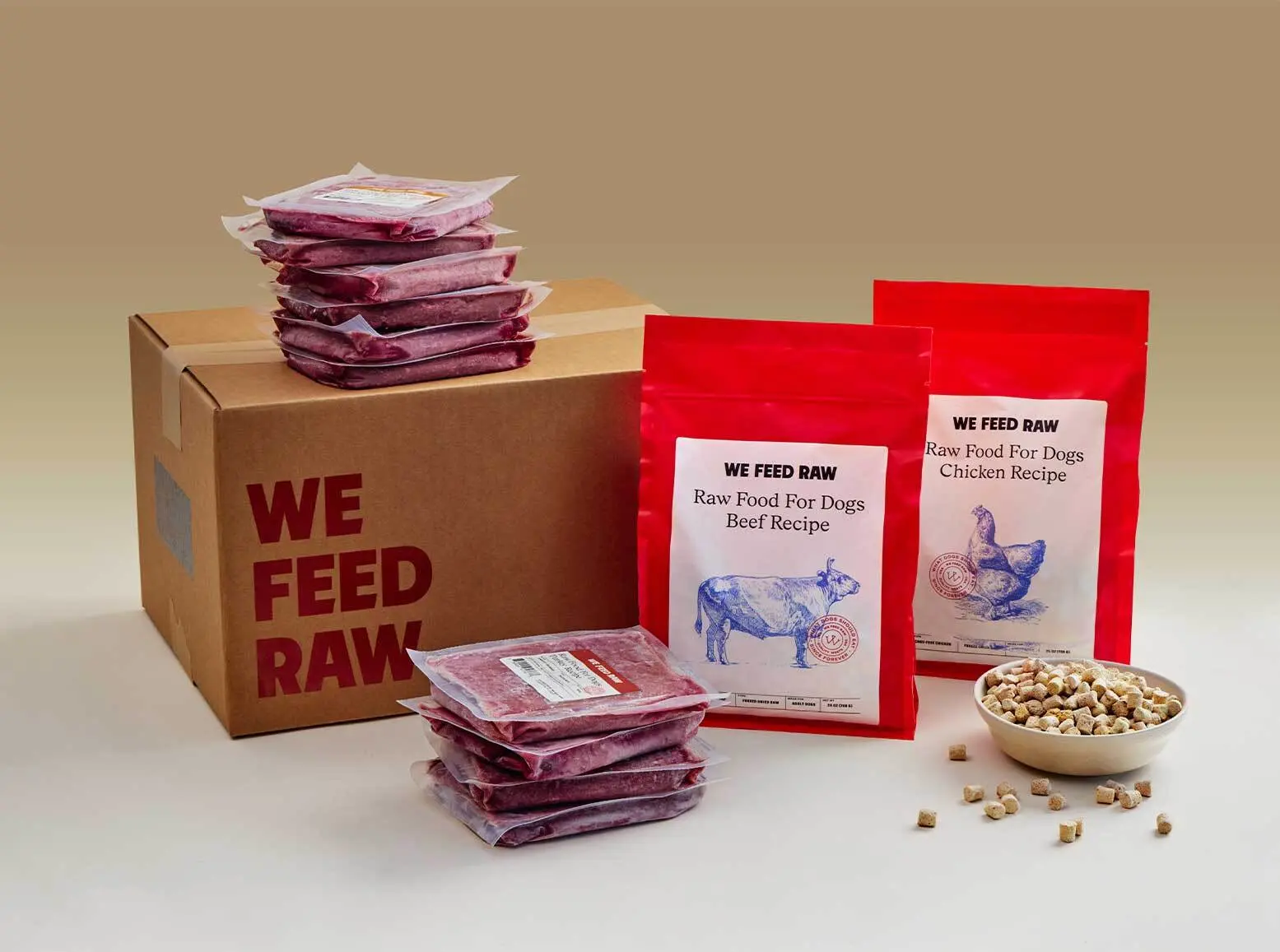
Our Meals Change Lives.
(Theirs + Yours.)
See health improvements from our raw meals in as little as 1 week.
